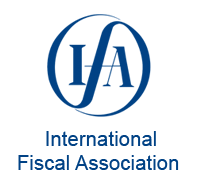Law No. 56/2023 was enacted on October 6th, 2023, to implement the initiatives of the “More Housing” Programme, with the objective of endorsing measures that ensure more housing at more affordable prices. The key changes, which took effect on October 7th, 2023, are outlined below:
Promoting Affordable Housing
- Financing Program
- Creation of a financing program with mutual guarantee and interest rate subsidies for projects related to affordable housing, encompassing construction or rehabilitation, property acquisition for this purpose, and subsequent rental, with a total allocation of €250.000.000,00 (two hundred and fifty million).
- The financing program will be administered by Banco Português de Fomento, S.A., within 45 days from the enactment of this law, or, if later, upon approval of the legally required conditions.
- Leasing to public entities for subsequent sub-leasing to eligible candidates, as per the criteria established in programs promoted by the Beneficiary Entities [1]in the sphere of affordable housing, is permissible.
- Transfer of Land and Public Buildings
- The government will identify public assets for the transfer of land and public buildings, aiming to make land or public buildings available for the construction, conversion, or rehabilitation of properties for affordable rent.
- This transfer will be executed through a surface right for a maximum period of 90 years, renewable by mutual agreement between the parties for the same purpose.
- Although the transfer of this surface right is allowed, ensuring the preservation of all inherent rights and obligations, notably the obligation to allocate the dwellings to the development of affordable rental housing, the law restricts the transfer of complete ownership to the beneficiaries.
- The buildings developed under this Affordable Housing Programme will be allocated for affordable rental for 90 years, renewable in case of surface right transfer, or 25 years in other instances.
New Generation of Cooperatives to Promote Affordable Housing
The “pilot projects” to be encompassed in the new generation of cooperatives for the promotion of affordable housing will be advanced through a protocol to be jointly signed by territorially competent entities of the cooperative sector and the IHRU, I.P., with the involvement of the competent municipality and representative entities of the parish councils, wherever feasible.
Regarding the existing housing stock, the New Generation of Co-operatives for the Promotion of Affordable Housing is ensured through non-repayable public funding amounting to 25% of the total construction cost.
Incentives for Rental Housing
- Acquisition of Properties by Public Entities
Public entities are allowed to acquire property rights or other rights in rem over real estate for affordable rentals, as well as the acquisition, in whole or in part, of cost-controlled housing developments. However, the acquisition value of these properties by public entities must align with the valuation procedure’s results. - Financing Line for compulsory renovation works
Consistent with the earlier presented draft law, the approval of a financing line, with mutual guarantee and interest rate subsidy, to support municipalities in carrying out mandatory works, up to a maximum overall amount of €150.000.000,00 (one hundred and fifty million) is maintained. - Supervision duty from Water, Energy and Telecommunications Entities
It is determined that water, energy, and telecommunications distributors must notify the Portuguese Tax Authority by the 15th of April, July, October, and January of the contracts signed with final customers and any changes that occurred in the previous quarter concerning consumption at the respective points of delivery, universal installation code, or equivalent. Additionally, these entities must, through this communication, provide an updated list of absent or low consumption for each building or independent unit, using the land registry information of the buildings.
Mobilization of Vacant Properties
- Amendment to the Urbanization and Edification Legal Regime (RJUE)[2]
- Duty of Use: Buildings must undergo periodic inspections by the respective City Council, either initiated by the council or at the request of any interested party, to assess habitability and usage conditions. This inspection must also confirm compliance with legal regulations on habitability conditions that may constitute irregular situations regarding renting or subletting. If irregular situations are identified, the municipality will instruct the owner to restore use as per authorized terms.
- Forced rental of vacant housing: This regulation pertains to independent units and parts of urban buildings suitable for separate residential use, categorized as vacant and unoccupied for over 2 years, provided they are located outside the inland territories. After the two-year period, the municipality with territorial jurisdiction will send a notification to the owner, depending on the circumstances:
- Notification of the conservation duty, urging the execution of necessary works if the notification is not complied with; or
- Notification of the duty to use the independent unit and, if so desired, submitting a rental proposal.
- In cases where notification of the duty to make use of the fraction has been given and the owner refuses the proposal or does not respond within 90 days of receiving it, and the property remains vacant, the municipality with territorial jurisdiction, whenever it proves necessary to guarantee the social function of housing, may, on an exceptional and supplementary basis, proceed with the forced rental of the property.
- If the municipalities do not intend to rent the property and it does not need conservation work, they will send the information about the property to IHRU, I.P., so that it can notify the owner if it wishes. This measurement does not apply to the Autonomous Regions.
Enhancing Security in the Rental Market
- Safeguarding Tenants in New Contracts
- The initial rent for new residential leases on properties with leases in effect for five years before the enactment of this law shall not exceed the value of the last rent practised for the same property in a previous contract, applied with a coefficient of 1,02.
- In cases where the previous lease has not undergone one or more legally permitted updates, the initial rent for the new lease may still be subject to annual coefficients, provided that no more than three years have elapsed since the date when their application would have initially been possible, with the coefficient for the year 2023 set at 1.0543.
- For properties that have undergone extensive remodelling or restoration work, officially certified by the City Council, the initial rent for new rental contracts may be increased by the amount equivalent to the costs borne by the landlord, up to an annual limit of 15%.
- Protection of Tenants with Older Leases
- Contracts pertaining to tenants with a Corrected Annual Gross Income of less than five National Annual Minimum Wages, tenants aged 65 or older, or disabled tenants with a degree of incapacity equal to or greater than 60 per cent will not be transferred to the New Urban Lease Regime.
- Tax measures will be specified, including personal income tax and municipal property tax, along with the compensation amounts and limits for landlords and the rent determination for tenants, effective from 2024.
- Alteration to the New Urban Lease Regime (NRAU)
- Regarding rents, charges, or expenses overdue for a period equal to or greater than two months, if the tenant fails to make payment or deposit within 10 days of being notified, along with the compensation due, the landlord may request immediate eviction.
- The Tenant and Landlord Balcony (BAS) is established at the General Directorate for the Administration of Justice to handle the special eviction procedure and injunctions related to tenancy matters. The judicial secretariat of BAS holds exclusive competence for handling the procedure nationwide, and applications for injunctions regarding tenancy matters will now be submitted to BAS.
- Addition to the New Urban Lease Regime (NRAU)
- Support and Protection in Eviction Procedure Situations: Eviction procedure notifications will now include information about public services available to tenants without alternative housing. A report on the tenant’s social situation will be compiled by social security services in collaboration with the Court.
- Payment Guarantee: The state will guarantee payment of rent in case of lease termination due to the tenant’s default, with the maximum monthly payment being 1,5 times the Guaranteed Minimum Monthly Remuneration, and a total limit of nine times the Guaranteed Minimum Monthly Remuneration. The state will be automatically subrogated to the claimant’s rights, which can be pursued through tax enforcement.
[1] Beneficiary entities mean the following entities: Beneficiaries mean housing and construction cooperatives that meet the conditions for access set out in article 4 of Decree-Law no. 145/97, of 11 June; Commercial companies engaged in the construction industry, in consortium or under another form of association with commercial companies whose corporate purpose includes rental for housing and property management, which meet the conditions for access set out in article 4 of Decree-Law no. 165/93, of 7 May, or companies in whose capital they hold a stake; Municipalities and Councils; Misericórdias, Institutions of Social Solidarity and Property Management, or companies in whose capital they hold a stake. º165/93 of 7th May, or companies in whose capital they hold a stake, as well as entities dedicated to property development and investment; Municipalities and Parish Councils; Misericórdias, Private Institutions of Social Solidarity (IPSS) and legal persons of public or administrative utility or recognised public interest; IHM- Investimentos Habitacionais da Madeira, EPERAM and the Regional Department of the Azores with responsibility for Housing, the latter three being able to exercise this benefit alone or in partnership with the aforementioned entities.
[2] cfr. Articles 88-A and 108-C of the Urbanization and Edification Legal Regime.













